Bringing together world-class researchers to share knowledge
and move research
into action.
Please click through the drop-down list associated with each profile to learn more about the amazing collaborators and speakers for our conference!
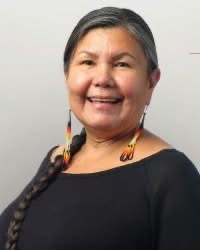
Grandmother Sherry Copenace
From the Ojibways of Onigaming
Opening the Conference & Awards Dinner Blessings
Wednesday, October 22nd
Thursday, October 23rd
TBD
Grandmother Sherry Copenace – Niizhoosake, Saagimaakwe, Atik n’dodem (Elk Clan), Midewewin. Born and raised on the community of Ojibways of Onigaming, which is located in Northwestern Ontario and on the east side of Lake of the Woods. Sherry speaks her original Language-Ojibway and has a great love for the Land and Waters. Since 2011, Sherry has led a renewal of Makoosekawin-Anishinaabe young women coming of age teachings and ceremonies. Sherry has her MSW degree and is a faculty member with the University of Manitoba MSW IK program. Sherry is associated with several institutions and organizations who continually engage her for her knowledge and lived experience.
Grandmother Sherry Copenace will be opening our conference on Wednesday October 22nd, 2025, connecting us all and to our theme of Roots, Breath, & Belonging: The Impacts of Climate Change on Child Health. She will also be bringing blessings for our Awards Dinner on Thursday October 23rd, 2025.

Dr. Michael Brauer
From the University of British Columbia
Burning Down the House: Climate Change and Children’s Health
Wednesday, October 22nd
TBD
Michael Brauer is a Professor in the School of Population and Public Health at The University of British Columbia and a Principal Research Scientist and Affiliate Professor at the Institute for Health Metrics and Evaluation at the University of Washington, where he leads the Environmental, Occupational and Dietary Risk Factors team for the Global Burden of Disease. His research focuses on linkages between the built environment and human health, with specific interest in the global health impacts of air pollution, the relationships between multiple exposures mediated by urban form and population health, and health impacts of a changing climate.
The presentation will provide an overview of current understanding of the impacts of a warmer climate on children’s health, with a focus on exposure to wildfire smoke, extreme heat and pollen. Adaptation and exposure reductions approaches will also be summarized.
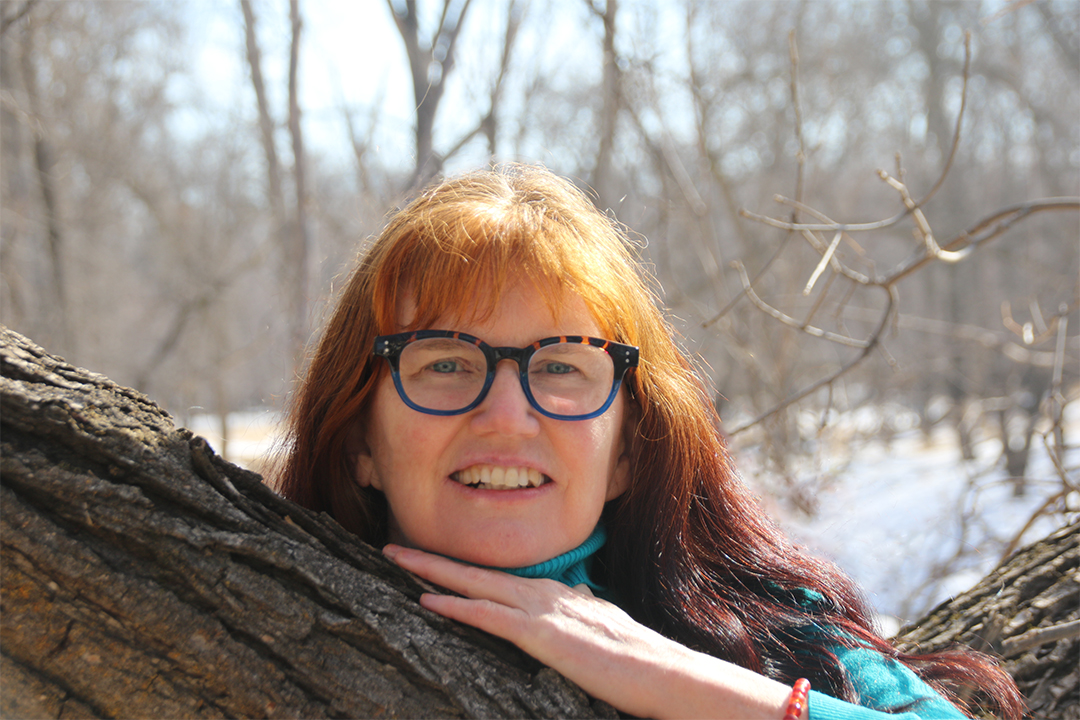
Dr. Shirley Thompson
From the University of Manitoba
Food, Education, and Housing are the Building Blocks to Maternal and Child Health
Wednesday, October 22nd
TDB
Dr. Thompson is an associate professor in a graduate department with the Faculty of Environment, Earth, and Resources at the University of Manitoba. Dr. Thompson is the principal investigator with the Mino Bimaadiziwin Partnership, researching on Indigenous-led community development and education for housing and food solutions with cohorts from different First Nations, including York Factory First Nation. Dr. Thompson studies environmental justice and health focused on children, First Nation remote communities and women. Her focus is building community-university partnerships that build capacity for Indigenous youth to develop their community through hands-on experiences.
Transforming the housing, food and post-secondary education system, particularly at the Wikiwin Polytechnic Institute in York Landing, is showing health benefits. Healthy housing and food security are critical to maternal and child health. Research with Northern First Nations has documented ill health due to unhealthy housing and poor food security. Research results from programming for First Nation youth to design and build First Nations’ northern homes and different education programs show how transformative post-secondary programs can be for health.

Dr. Kristin Bos
From the University of Toronto
Maternal Health Impacts of Environmental Racism and How Colonial Envrionment Degradation Translates to Harm for Indigenous Children
Wednesday, October 22nd
TBD
tbd
tbd
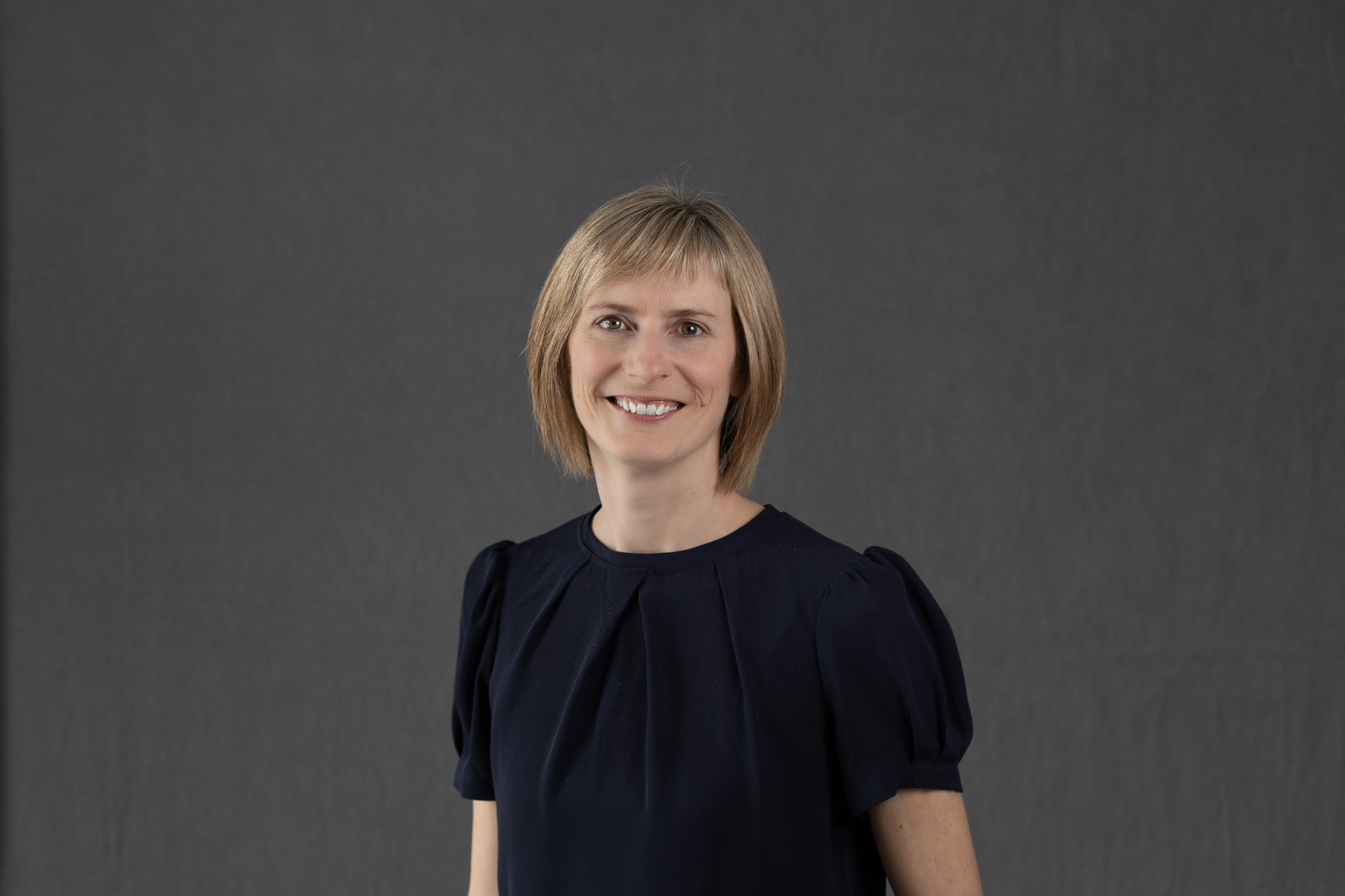
Dr. Jenny Bruin
From Carleton University
Contribution of Environmental Pollutants to Islet Dysfunction
and Diabetes Risk
Wednesday, October 22nd
TBD
Dr. Jenny Bruin is an Associate Professor in the Department of Biology and Institute of Biochemistry at Carleton University. She completed her BSc in Biomedical Toxicology at the University of Guelph and her PhD in Reproductive Toxicology at McMaster University. From 2010 to 2016, Dr. Bruin was a postdoctoral fellow in Tim Kieffer’s lab at UBC, where she studied stem cell-based therapies for patients with diabetes. In 2016, she started her independent position at Carleton University, where her lab studies islet biology, pancreas development, and toxicology. Her team is investigating how environmental factors—including endocrine-disrupting chemicals—impact islet function and contribute to diabetes risk.
A discussion on how exposure to environmental pollutants influences the health of insulin-secreting beta cells and contributes to rising global diabetes rates. The strengths and limitations of different model systems used in Dr. Bruin’s lab will be emphasized, ranging from human studies to rodent models to cell models.
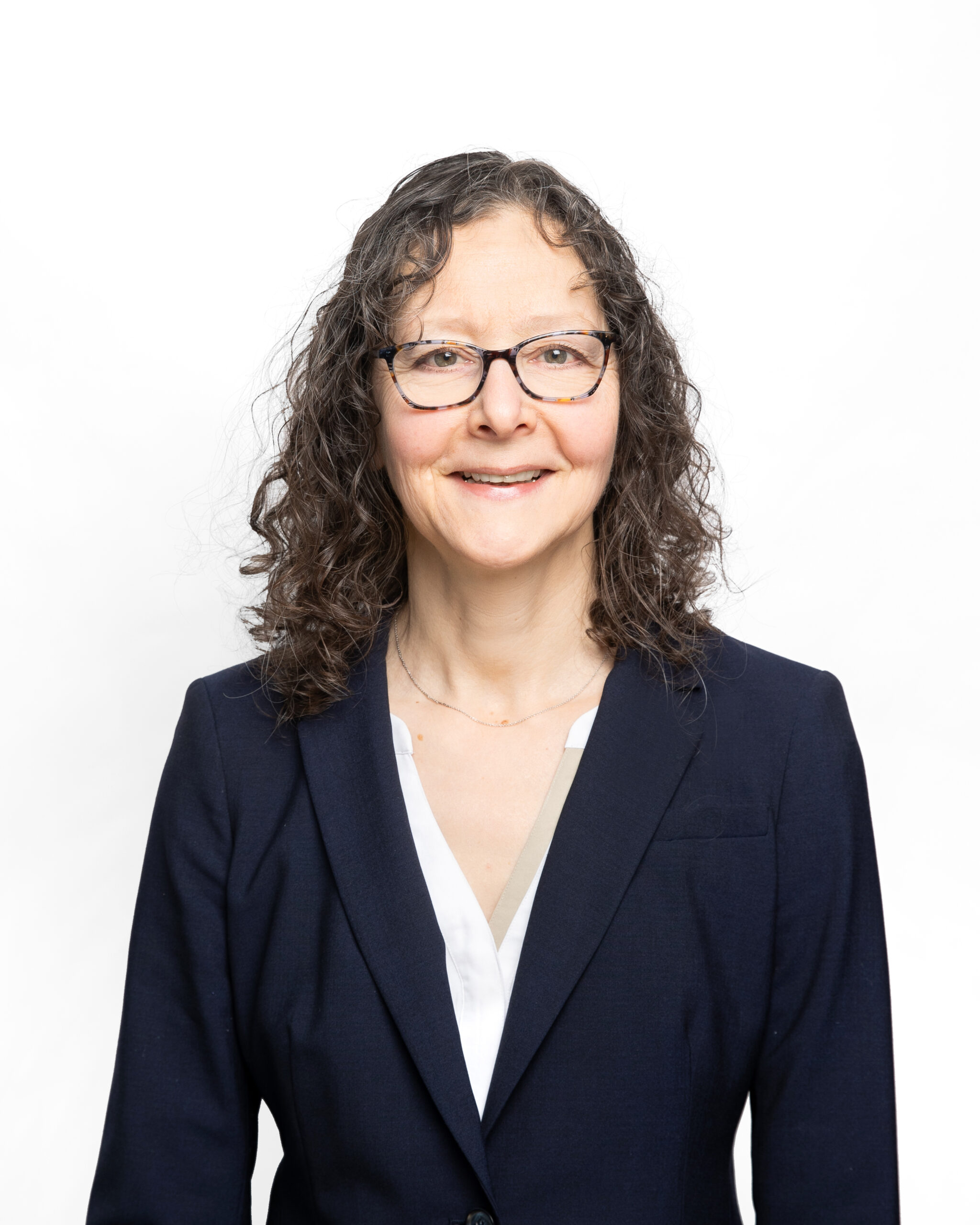
Dr. Anne Hicks
From the University of Alberta
Climate Change, Asthma, and Air Quality Research: A Kid’s-eye View
Wednesday, October 22nd
TBD
Anne Hicks, a Tier 2 Canada Research Chair in Children’s Lung Health, is an associate professor in Pediatric Respiratory Medicine and clinical lead of the Stollery Children’s Environmental Health Clinic, a World Health Organization Collaborating Centre, at the University of Alberta. Her interdisciplinary research includes asthma and environmental health guideline development with the Canadian Thoracic and Paediatric Societies and collaborative work to learn how to prevent or mitigate exposure-related harms to lung health and development.
This patient’s eye review of a research program evolution should enable participants to:
1) Identify air quality concerns associated with climate change;
2) Discuss childhood asthma in the context of climate change; and
3) Consider ways to understand and mitigate climate-driven adverse health outcomes.
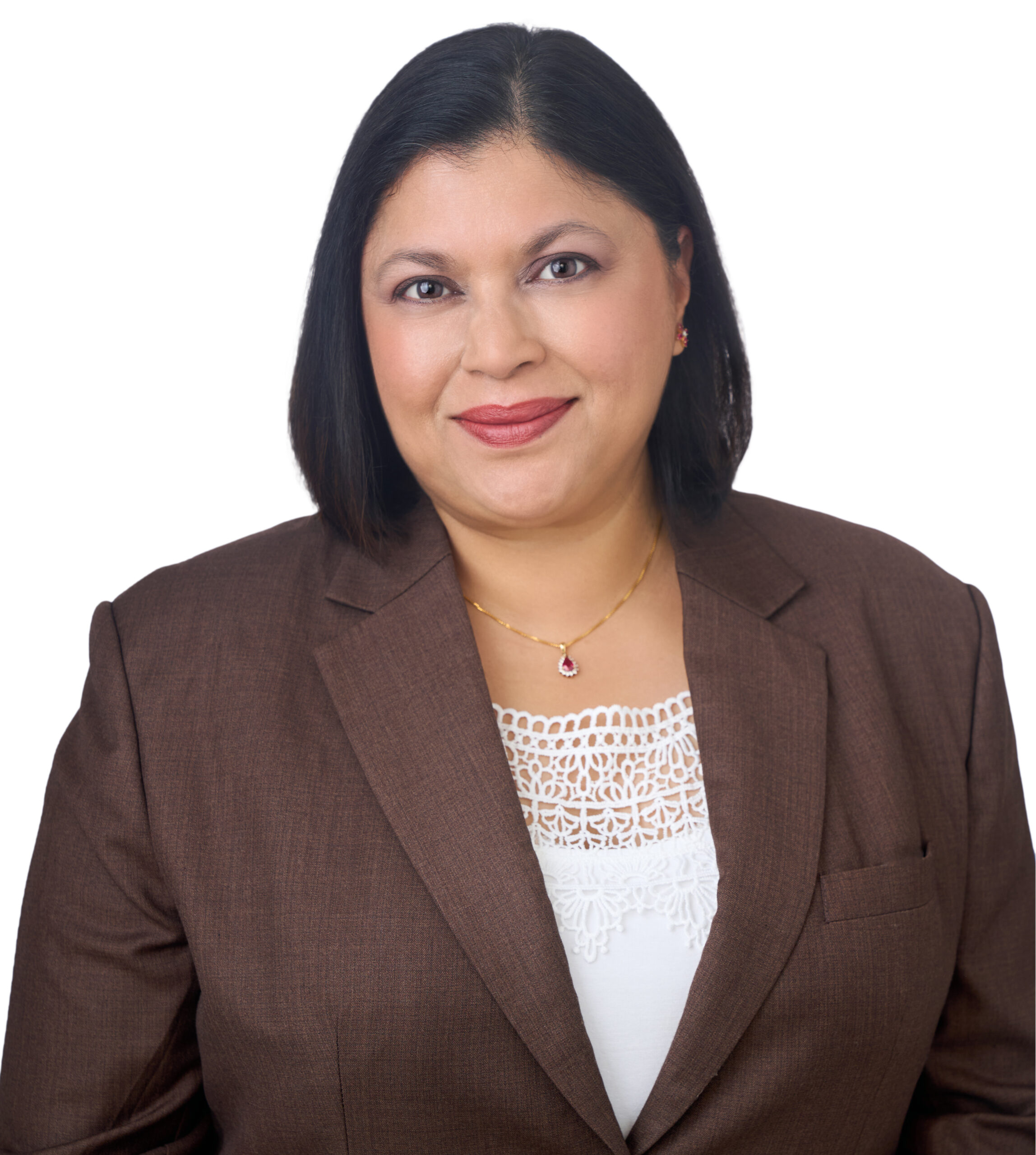
Dr. Neeloffer Mookherjee
From the University of Manitoba
Environmental Pollutants and Host Defense: Adaptation of the Lung and Plasma Proteome
Wednesday, October 22nd
TBD
Dr. Neeloffer Mookherjee is a Professor within the Departments of Internal Medicine and Immunology, at the University of Manitoba. Her research group uses Systems-level approaches to identify molecular hubs within inflammatory networks in chronic disease such as asthma and arthritis. Dr. Mookherjee is recognized for her pioneering research on the immunity-related functions of host defence antimicrobial peptides. Dr. Mookherjee was awarded the inaugural CIHR Sex and Gender Science Chair in Respiratory Health, leading research on the influence of biological sex in respiratory disease and response to therapy. Dr. Mookherjee is also Co-lead of AirSAFE, a multidisciplinary facility dedicated to research on the health impacts of air pollution.
This presentation will summarize a series of studies detailing changes in the lung and plasma proteome in response to inhaled environmental pollutants, and the influence of biological sex therein. The impact on host defense mechanisms, in particular immune response to infections, will also be discussed.
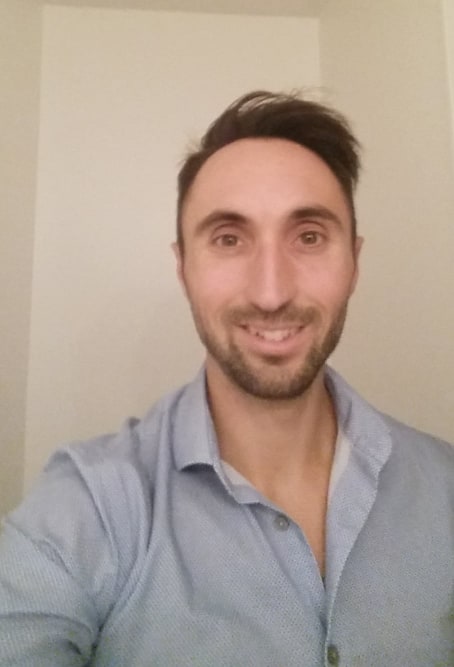
Dr. Éric Lavinge
From Health Canada
Prenatal and Early Life Exposures to High Ambient Temperature and Air Pollution on Subsequent Maternal and Child Health Outcomes
Wednesday, October 22nd
TBD
Éric Lavigne is an environmental epidemiologist and a Research Scientist with Health Canada, an Adjunct Professor in the School of Epidemiology and Public Health at the University of Ottawa and an Adjunct Scientist with the Institute for Clinical Evaluative Sciences in Ontario. His research interests include both the adverse and beneficial effects of the environment on human health. His interests lie in the connection between air pollution and climate change, particularly with regard to early life exposure and the health of children.
This session aims to summarize the scientific evidence on the maternal and childhood health effects of exposure to air pollution and high ambient temperature during pregnancy and during the early childhood period. Recent Canadian findings of exposure to extreme heat during the prenatal period on childhood neurodevelopmental outcomes will also be presented.
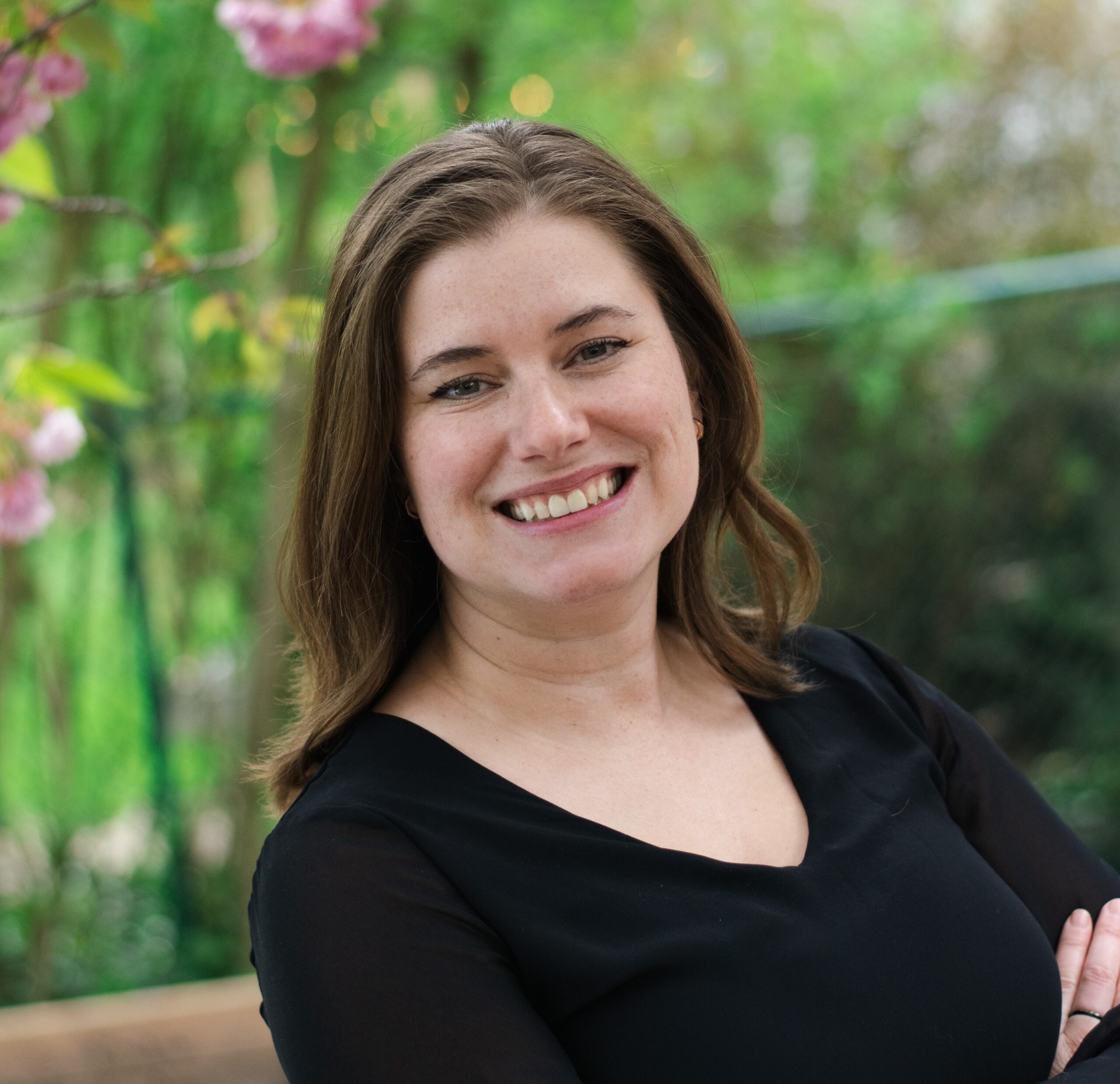
Dr. Gina Martin
From Athabasca University
Climate Crossroads: The Impact of a Changing Planet on Adolescent Health
Thursday, October 23rd
TBD
Dr. Gina Martin is an Associate Professor in the Faculty of Health Disciplines at Athabasca University and an Adjunct Professor in the Department of Geography and Environment at Western University. Her research focuses on how the physical and social environments where young people live, play, and learn influence their health and wellbeing. She is particularly interested in how climate change affects adolescent health and in identifying the factors that can help mitigate these impacts. Her research bridges geography, substance use, mental health, wellbeing, and climate change, offering a holistic perspective on young people’s health. Her work aims to inform evidence-based strategies that support healthy, resilient futures for young people in the face of climate change.
This talk will explore the growing evidence linking climate change and adolescent health, both nationally and globally. Drawing on research with Canadian young people, it will delve into how adolescents perceive and experience climate change, including the emotions it evokes and the strategies they use to cope. The session will highlight emerging insights and conclude with a forward-looking discussion on how research, public health policy, and planning can better respond to the unique needs of adolescents in the face of climate change.
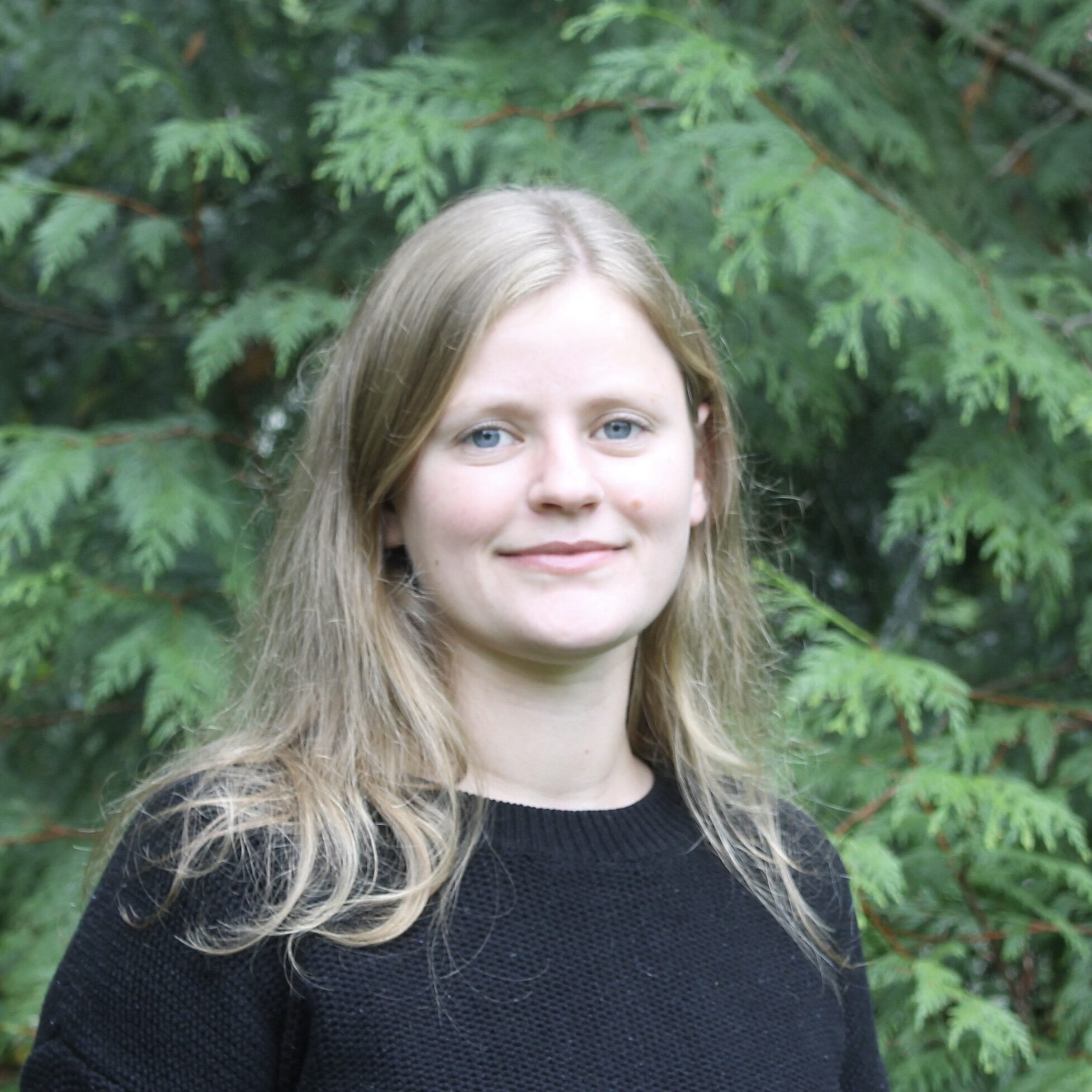
Dr. Ingrid Jarvis
From the University of British Columbia
Growing Up Green: How Nature Influences Children’s Health
and Development
Thursday, October 23rd
TBD
Ingrid Jarvis is a postdoctoral research fellow in the School of Population and Public Health at the University of British Columbia (UBC) and a Michael Smith Health Research BC trainee. She holds a PhD in Forestry from UBC, where she studied how urban green spaces support human health across the life course. Her current research focuses on how residential green space influences cognitive function in older adults. By examining different green space types and pathways linking nature to health, her work aims to inform urban planning and policy for healthier communities.
This presentation explores how exposure to urban green space, such as parks, gardens, and street trees, supports children’s health and development. It reviews current evidence, outlines potential pathways linking nature to well-being, and highlights findings from research to inform health promotion and urban planning strategies.
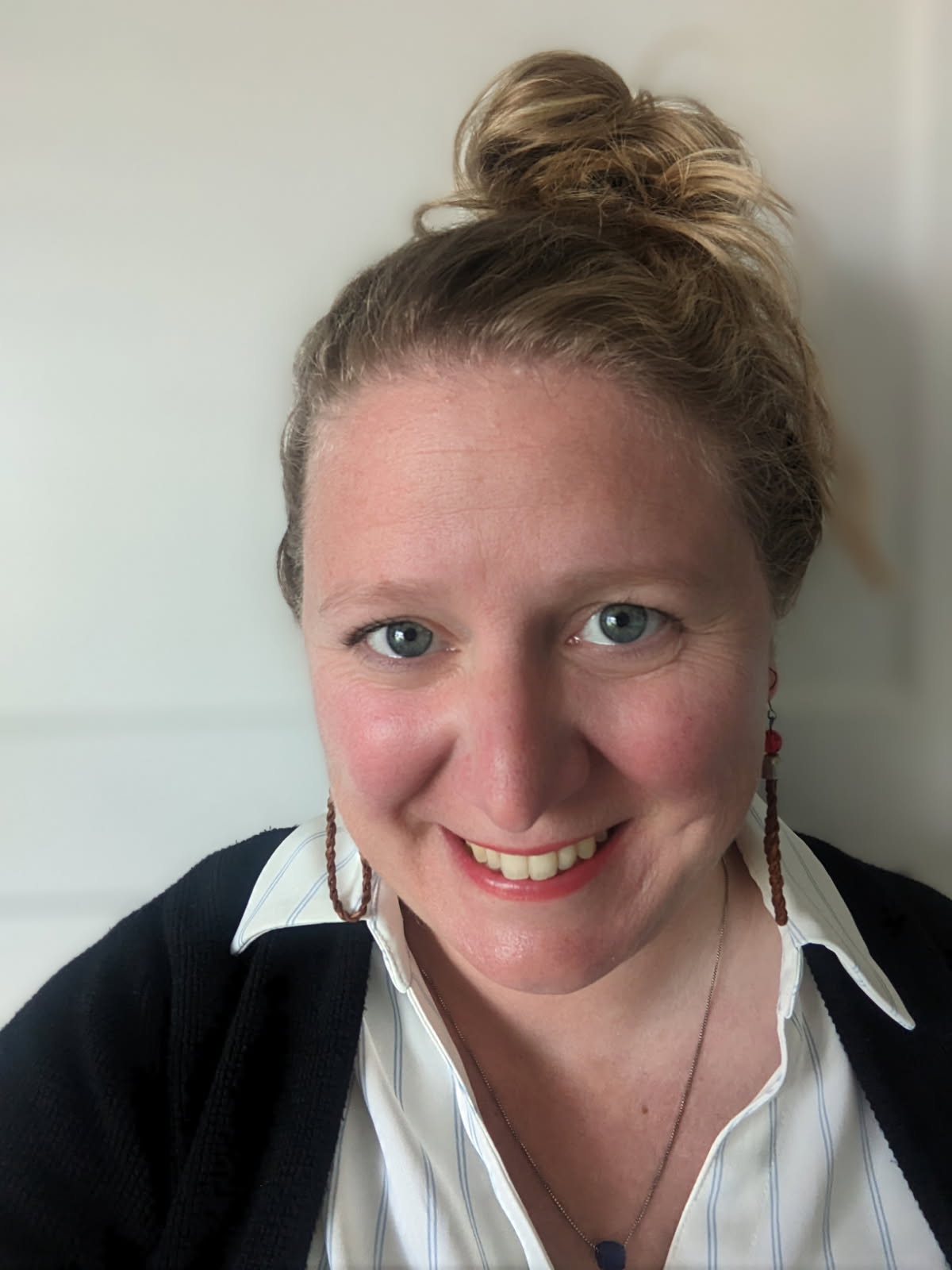
Maria Shallard
From the Canadian Climate Institute
Healthy Energy Homes
Thursday, October 23rd
TBD
Maria Shallard is the Director, Indigenous Research at the Canadian Climate Institute where she focuses on the development of Indigenous-led climate policy. She was raised on Líl?wat territory in Pemberton (Mt. Currie), B.C. She currently resides on unceded K’ómoks territory in Cumberland, B.C. As someone of mixed European settler and Penelakut ancestry, Maria comes to her work knowing that learning and (un)learning is a life-long journey. She has over a decade of professional experience as an educator, project manager and researcher, coordinating Indigenous and western knowledge programs centered on planetary health and wellness. Maria holds a Master’s in Geography from the University of Guelph with a specialization in political ecology and Indigenous ocean governance. This research was supported through the Hakai Network for Coastal People, Ecosystems and Management. She holds an interdisciplinary Bachelor of Arts from the University of Victoria with a double major in environmental studies and Canadian environmental history, with a minor in Indigenous studies. Maria also holds certificates in coaching, leadership, and communication.
The Healthy Energy Homes project, a partnership between Indigenous Clean Energy and the Canadian Climate Institute, aims to address the long-standing challenge that many Indigenous people in Canada live in inadequate housing.
Poor quality homes are causing severe health impacts in Indigenous communities across Canada—investing in Healthy Energy Homes could help address these impacts, make communities more resilient to climate impacts, and help
reduce emissions and health care costs.
This session will be based on the Healthy Energy Homes project being led by Indigenous Clean Energy and the Canadian Climate Institute. It will highlight the connections between housing, health outcomes, clean energy, and
energy efficiency, and show how innovative solutions can leverage synergies between housing, health, and energy, which will also build climate resilience and create economic benefits for communities.

Tyrone Munroe
From Four Arrows Land Based Programming
Panel Presentation: Climate Change — What Can We Do?
Thursday, October 23rd
TBD
tbd
tbd

Sunday Queskekapow
From Kíwétinohk Consulting
Panel Presentation: Climate Change — What Can We Do?
Thursday, October 23rd
TBD
Sunday (Ayamihewi-kisikaw) Queskekapow is a Two-Spirit Swampy Cree First Nations person from Ohpáskowayáhk (The Pas/OCN) and a proud band member of Kinosao Sipi in Treaty 5. Sunday is the co-owner and co-founder of Kíwétinohk Consulting, a fully Indigenous 2SLGBTQIA+ consulting firm that provided consulting and Gladue services.
During the panel Sunday will provide insight from a youth with lived experience in a northern community that is impacted by the toxic waste industry and a member of a hydro affected community. They will highlight the importance of youth led voices for this impact.

